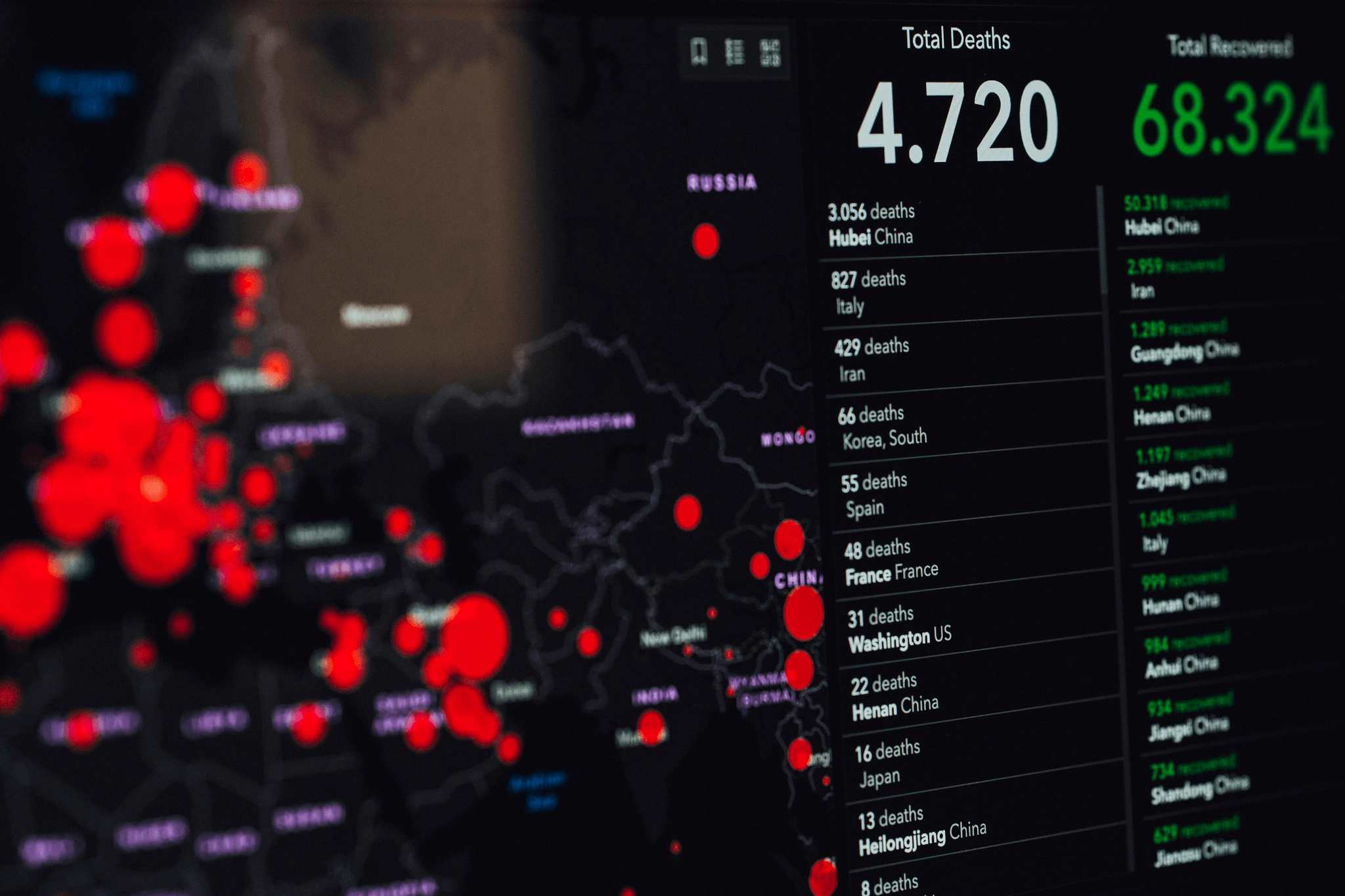Introduction
In the ever-evolving landscape of global commerce, low cost country sourcing trends have become a focal point for businesses seeking competitive advantages. The allure of lower production costs has prompted companies to explore new markets, reshaping traditional supply chains and igniting a race to find the most cost-effective solutions. As firms like SSOURCING INC. adapt to these changes, understanding the dynamics at play is essential for navigating the complexities of sourcing in today’s economy.
The Rise of Low Cost Country Sourcing
Low cost country sourcing trends have surged in popularity over recent years, driven by globalization and advances in communication technologies. Companies are increasingly looking beyond their borders to tap into cost-efficient production capabilities offered by emerging markets. This shift not only reduces operational expenses but also enables businesses like SSOURCING INC. to allocate resources more effectively, enhancing overall competitiveness.
Shifting Global Economic Dynamics
The global economic landscape is undergoing significant transformations that influence low cost country sourcing trends. Factors such as trade agreements, geopolitical tensions, and fluctuating currencies are reshaping how companies approach their sourcing strategies. As these dynamics evolve, organizations must remain agile and responsive to maintain their edge in a rapidly changing environment.
The Role of Technology in Sourcing
Technology plays a pivotal role in shaping low cost country sourcing trends by streamlining processes and enhancing decision-making capabilities. Innovations such as big data analytics and cloud-based platforms empower businesses to make informed choices about supplier selection and risk management. For SSOURCING INC., leveraging technology not only optimizes sourcing practices but also fosters collaboration across global supply chains.
Understanding Low Cost Country Sourcing

Low cost country sourcing, often abbreviated as LCCS, refers to the practice of procuring goods and services from countries where production costs are significantly lower than in the buyer's home market. This approach has gained traction among businesses seeking to enhance profitability while maintaining competitive pricing. As global markets evolve, understanding low cost country sourcing trends becomes essential for companies like SSOURCING INC. to stay ahead.
Defining Low Cost Country Sourcing
At its core, low cost country sourcing involves identifying suppliers in regions where labor, materials, and operational expenses are reduced compared to domestic options. Countries such as China, India, Vietnam, and Mexico have emerged as popular destinations due to their favorable economic conditions and skilled labor force. By leveraging these advantages, businesses can optimize their supply chains and respond more effectively to market demands.
Benefits for Businesses
The benefits of low cost country sourcing are manifold and can significantly impact a company's bottom line. Firstly, businesses enjoy substantial cost savings on production expenses which can be redirected into other areas such as research and development or marketing initiatives. Secondly, accessing a broader range of suppliers allows companies like SSOURCING INC. to negotiate better terms and improve product quality through competition among vendors.
Moreover, adopting low cost country sourcing trends enables companies to scale operations rapidly without incurring hefty overhead costs commonly associated with domestic manufacturing facilities. This flexibility is crucial in today’s fast-paced market environment where consumer preferences shift rapidly. Ultimately, by embracing LCCS strategies effectively, organizations position themselves for sustainable growth.
Key Markets in Low Cost Sourcing
When discussing key markets in low cost sourcing, several countries stand out due to their unique advantages and robust infrastructure supporting manufacturing capabilities. China remains the undisputed leader in this arena; its vast labor pool combined with advanced manufacturing technologies makes it a go-to destination for many industries—from textiles to electronics.
India is also making significant strides with its burgeoning IT sector and competitive labor costs that attract numerous tech firms looking for outsourcing solutions. Additionally, Southeast Asian nations like Vietnam have become increasingly popular due to favorable trade agreements and a young workforce eager to meet global demands.
As we analyze these emerging low cost country sourcing trends further at SSOURCING INC., it’s evident that diversifying supplier bases across multiple regions not only mitigates risks but also enhances innovation through varied perspectives on product development.
Economic Influences on Sourcing Trends

In today’s interconnected economy, various economic factors significantly influence low cost country sourcing trends. From currency fluctuations to evolving trade policies, businesses must navigate a complex landscape to optimize their sourcing strategies. Understanding these influences is crucial for companies like SSOURCING INC., which aim to stay ahead in the competitive market.
Currency Fluctuations and Sourcing
Currency fluctuations play a pivotal role in shaping low cost country sourcing trends, impacting the overall cost of goods and services. When a country's currency weakens against others, it can make sourcing from that region more attractive due to lower prices. Conversely, a strong currency can drive costs up, prompting businesses to reevaluate their supply chains and consider alternative low-cost markets.
For instance, if the Chinese yuan depreciates against the US dollar, American companies might find it cheaper to source products from China than from domestic suppliers. This ongoing fluctuation necessitates that businesses continuously monitor exchange rates and adjust their sourcing strategies accordingly. SSOURCING INC. leverages real-time data analytics to make informed decisions that minimize risks associated with currency volatility.
Trade Policies Shaping the Landscape
Trade policies are another significant factor influencing low cost country sourcing trends, as governments implement tariffs and trade agreements that affect international commerce. Changes in these policies can either facilitate or hinder access to key markets for businesses looking for affordable manufacturing options. For example, recent shifts toward protectionism may prompt companies like SSOURCING INC. to explore alternative countries with favorable trade conditions.
Moreover, free trade agreements can lead to reduced tariffs and improved market access for low-cost countries, making them more appealing for sourcing operations. Companies must remain agile in response to these policy changes by diversifying their supplier base and maintaining flexibility in their sourcing strategies. Staying informed about global trade dynamics ensures that SSOURCING INC.'s clients benefit from the best possible pricing and quality.
Impact of Global Supply Chain Disruptions
Global supply chain disruptions have become increasingly common due to geopolitical tensions, natural disasters, and pandemics—each affecting low cost country sourcing trends in unpredictable ways. These events can cause delays or shortages of critical materials needed for production, leading businesses to reconsider their reliance on specific regions for manufacturing needs. For instance, during recent global crises, many companies found themselves scrambling for alternatives as traditional supply routes were disrupted.
To mitigate such risks moving forward, firms like SSOURCING INC. are investing in more resilient supply chains by diversifying their sources across multiple low-cost countries while maintaining quality standards and ethical practices. Companies are also exploring nearshoring options as they seek stability amidst uncertainty while still capitalizing on lower costs associated with overseas production when feasible. By adapting proactively to these disruptions, SSOURCING INC.'s clients can maintain competitive advantages even when faced with unpredictable challenges.
Technological Advancements Driving Change

The landscape of low cost country sourcing trends is being reshaped by groundbreaking technological advancements that enhance efficiency and decision-making. As businesses strive to remain competitive in a global market, leveraging technology becomes not just beneficial but essential. Companies like SSOURCING INC. are at the forefront of adopting these innovations to optimize their sourcing strategies.
Automation and Robotics in Manufacturing
Automation and robotics are revolutionizing manufacturing processes, particularly in low-cost countries where labor costs have traditionally been lower. By integrating automated systems, companies can achieve greater precision, reduce waste, and significantly increase production speed—all while maintaining quality standards that meet global demands. This shift not only helps businesses capitalize on low cost country sourcing trends but also allows them to reinvest savings into innovation and development.
Moreover, the rise of collaborative robots (cobots) is enabling a new era of human-machine interaction in factories across these regions. As cobots take over repetitive tasks, skilled workers can focus on more complex functions that require human ingenuity. The result is a more efficient workforce that aligns perfectly with the evolving nature of low cost country sourcing trends.
The Role of AI in Sourcing Decisions
Artificial Intelligence (AI) is becoming indispensable in refining sourcing decisions within the framework of low cost country sourcing trends. By analyzing vast amounts of data—from supplier performance metrics to market conditions—AI provides actionable insights that help companies make informed choices about where and how to source materials effectively. SSOURCING INC., for instance, utilizes AI-driven analytics to predict fluctuations in supply chain dynamics, ensuring they stay one step ahead.
Furthermore, AI algorithms can identify potential risks associated with suppliers or geopolitical factors affecting certain regions known for low-cost production. This proactive approach not only mitigates risks but also enhances overall supply chain resilience—a critical factor for businesses navigating today’s unpredictable economic landscape. Embracing AI empowers organizations to adapt swiftly to emerging opportunities within the realm of low cost country sourcing trends.
Digital Platforms for Supplier Management
Digital platforms have transformed how businesses manage their supplier relationships amid shifting low cost country sourcing trends. These platforms offer centralized solutions for tracking supplier performance, managing contracts, and facilitating communication—all vital components for maintaining strong partnerships with overseas manufacturers. SSOURCING INC.'s investment in such technologies enables them to streamline operations and foster collaboration across borders.
Additionally, digital tools allow for real-time monitoring of supply chain activities, ensuring transparency and accountability among suppliers located in various countries known for their competitive pricing structures. By utilizing these platforms effectively, companies can quickly pivot when faced with challenges or seize new opportunities as they arise within the ever-evolving landscape of low cost country sourcing trends. Ultimately, embracing digital solutions positions organizations like SSOURCING INC. at the cutting edge of modern procurement practices.
Sustainability and Ethical Sourcing
In today's global marketplace, sustainability and ethical sourcing have become paramount for businesses navigating low cost country sourcing trends. Consumers are increasingly demanding transparency and accountability from brands, pushing companies to adopt practices that not only reduce costs but also uphold ethical standards. As a result, organizations like SSOURCING INC. are re-evaluating their sourcing strategies to align with these expectations while maintaining competitiveness.
Growing Demand for Ethical Standards
The rise of social consciousness among consumers has led to a growing demand for ethical standards in sourcing practices. Companies must now consider the environmental impact of their supply chains and the working conditions of their employees in low-cost countries. This shift is not merely a trend; it reflects a fundamental change in how businesses operate, with SSOURCING INC. leading the charge by implementing rigorous ethical standards across its sourcing operations.
Incorporating ethical practices into low cost country sourcing trends can enhance brand loyalty and attract new customers who prioritize responsible consumption. Organizations that fail to adapt may find themselves facing backlash or losing market share to competitors who embrace these values wholeheartedly. Thus, understanding the nuances of ethical sourcing is essential for companies looking to thrive in today's economy.
Balancing Cost and Corporate Responsibility
While pursuing low cost country sourcing trends offers financial advantages, balancing cost with corporate responsibility poses significant challenges for businesses like SSOURCING INC. Companies must navigate the delicate line between minimizing expenses and ensuring fair labor practices, environmental stewardship, and community engagement in their supply chains. This balancing act requires innovative solutions that do not compromise on quality or ethics.
Investing in sustainable materials or fair trade practices may initially increase costs but can lead to long-term benefits such as improved brand reputation and customer loyalty. Moreover, stakeholders increasingly expect corporations to demonstrate social responsibility alongside financial performance—making it imperative for businesses to integrate these values into their core strategies effectively. SSOURCING INC.'s commitment to responsible sourcing exemplifies how companies can achieve this balance while remaining competitive in the market.
Case Studies in Sustainable Sourcing
Examining successful case studies provides valuable insights into how companies can implement sustainable sourcing strategies effectively within low cost country sourcing trends. For instance, several brands have transformed their supply chains by partnering with local artisans or adopting eco-friendly materials that support both economic development and environmental conservation in developing regions. These initiatives not only enhance brand image but also resonate deeply with socially conscious consumers.
Another notable example is a multinational corporation that revamped its procurement processes by incorporating sustainability criteria when selecting suppliers from low-cost countries—resulting in reduced waste and increased compliance with local regulations while maintaining profitability. Such case studies highlight the potential for innovation within sustainable practices that align seamlessly with business goals at SSOURCING INC., paving the way for future growth opportunities without sacrificing ethics or responsibility.
Future Outlook on Sourcing Strategies
As the global landscape continues to evolve, businesses must adapt their sourcing strategies to remain competitive. Low cost country sourcing trends are shaping the way companies approach procurement, pushing them to consider not just cost but also political and economic stability in their chosen markets. Understanding these dynamics will be crucial for firms aiming to leverage low-cost advantages while mitigating risks.
Navigating Political and Economic Risks
Political instability can significantly impact low cost country sourcing trends, making it essential for businesses to stay informed about geopolitical developments. Companies like SSOURCING INC. need to evaluate the political climate of potential sourcing destinations, as changes in governance can lead to sudden shifts in trade policies or tariffs that may affect costs. By implementing robust risk assessment frameworks, organizations can better navigate these uncertainties and ensure a steady supply chain.
Economic risks are equally important; fluctuations in currency values can alter the cost-effectiveness of sourcing from certain countries overnight. As businesses identify low-cost markets, they must also keep a keen eye on economic indicators that could signal impending challenges or opportunities within those regions. Ultimately, a proactive approach toward understanding and managing these risks will be key in maintaining successful low cost country sourcing strategies.
Identifying Emerging Low Cost Markets
Emerging markets present exciting opportunities for businesses looking to capitalize on low cost country sourcing trends while diversifying their supplier base. Countries like Vietnam, Bangladesh, and India are gaining traction due to their competitive labor costs and improving infrastructure capabilities—making them ideal candidates for new sourcing partnerships. SSOURCING INC.'s commitment to exploring these emerging markets will allow us to tap into fresh resources while staying ahead of competitors who may still be focused solely on traditional suppliers.
Additionally, as global trade dynamics shift due to changing consumer demands and supply chain disruptions, companies must remain agile in identifying new low-cost alternatives that align with their business goals. By leveraging data analytics and market research tools, organizations can pinpoint which emerging markets offer the best combination of affordability and stability for their specific needs. This strategic foresight will empower SSOURCING INC. and others in our industry to make informed decisions about future investments in low-cost country sourcing.
SSOURCING INC.'s Vision for Sourcing
At SSOURCING INC., our vision is rooted in innovation and adaptability as we navigate the ever-changing landscape of low cost country sourcing trends. We aim not only to provide our clients with cost-effective solutions but also ensure that ethical standards are upheld throughout our supply chain processes—balancing profitability with corporate responsibility is essential for long-term success. Our forward-thinking approach includes investing in technology that enhances supplier management while fostering sustainable practices across all our operations.
By actively engaging with local suppliers in emerging markets, we strive to build lasting relationships that promote mutual growth and development—because it's not just about finding the cheapest option; it's about creating value through collaboration and trustworthiness within our partnerships. As we look towards the future of sourcing strategies at SSOURCING INC., we remain committed to leveraging insights from global trends while maintaining a focus on ethical practices that resonate with today's conscientious consumers.
Conclusion

In the ever-evolving landscape of global commerce, low cost country sourcing trends are becoming increasingly significant. As businesses strive to optimize their supply chains, understanding the factors influencing these trends is paramount for staying competitive. From economic shifts to technological innovations, each element plays a crucial role in shaping how companies approach sourcing.
Factors Shaping the Future of Sourcing
Several key factors are steering the future of low cost country sourcing trends. Economic conditions, such as inflation rates and trade agreements, significantly impact sourcing decisions and market viability. Additionally, consumer demand for sustainability and ethical practices is reshaping supplier relationships and influencing which countries are deemed favorable for sourcing.
Preparing for Evolving Sourcing Trends
For businesses to thrive amidst changing low cost country sourcing trends, proactive preparation is essential. Companies must remain agile by continuously monitoring economic indicators and adapting their strategies accordingly. SSOURCING INC. emphasizes the importance of investing in technology and training to enhance decision-making processes related to supplier selection and management.
SSOURCING INC.'s Commitment to Innovation
At SSOURCING INC., we recognize that innovation is at the heart of navigating low cost country sourcing trends effectively. Our commitment extends beyond merely finding the lowest prices; we aim to foster sustainable partnerships that benefit all stakeholders involved. By embracing new technologies and ethical standards, we position ourselves as forward-thinking leaders in the realm of global sourcing.

